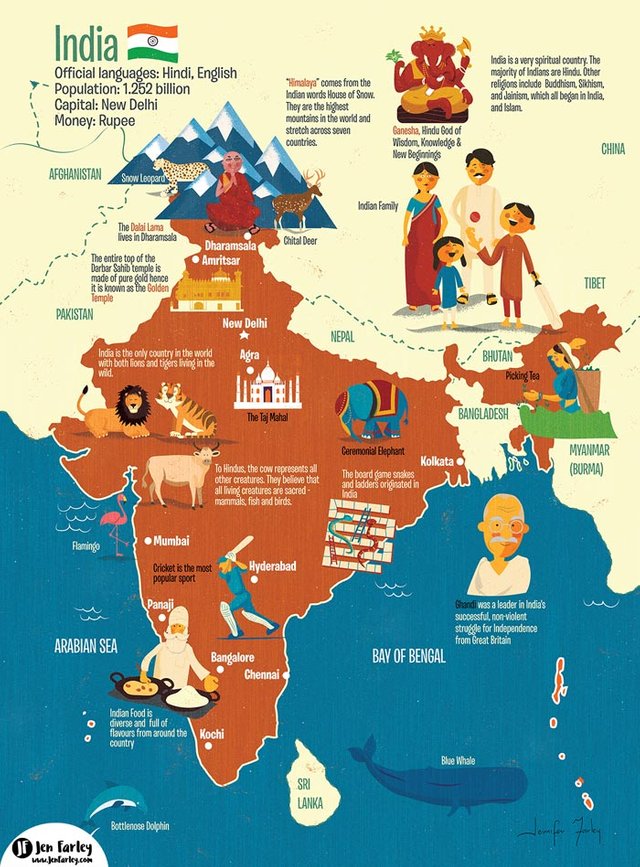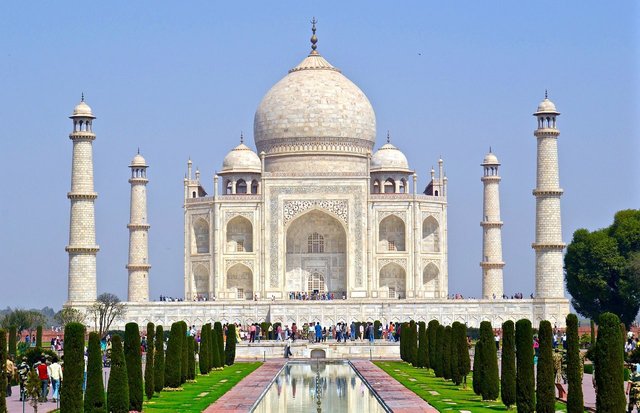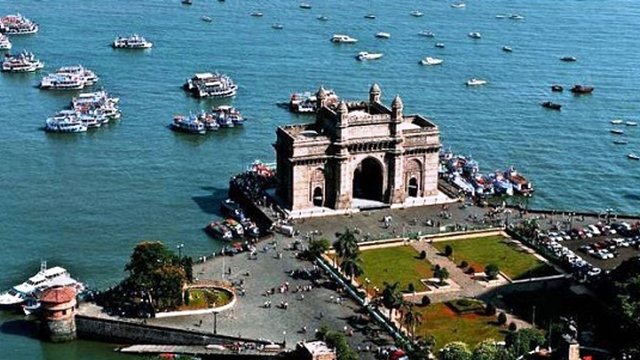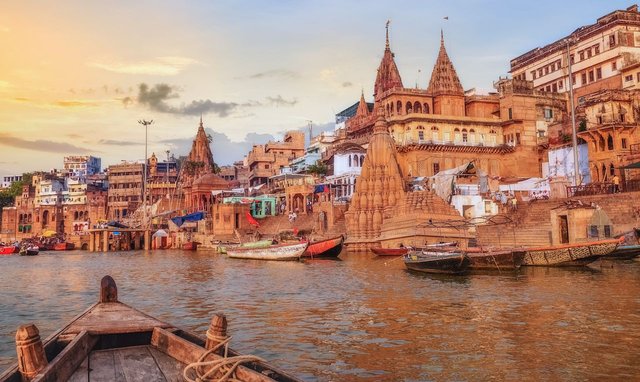About India
India, officially known as the Republic of India, is a diverse and culturally rich country located in South Asia. With a population of over 1.3 billion people, it is the second most populous country in the world, after China. India has a history that spans thousands of years and has been home to various ancient civilizations, making it one of the world's oldest continuous cultures.
Geography:
India is bordered by Pakistan to the northwest, China and Nepal to the north, Bhutan to the northeast, and Bangladesh and Myanmar to the east. To the south, it is surrounded by the Indian Ocean. The country has a varied topography that includes the towering Himalayan mountain range to the north, the fertile Indo-Gangetic plains, arid deserts, lush forests, and a long coastline.
History and Civilization:
India's history can be traced back to the Indus Valley Civilization, one of the world's earliest urban cultures, which existed around 3300–1300 BCE. Over the centuries, India has been home to various empires, including the Maurya, Gupta, Mughal, and British Empires. The Indian subcontinent has also been a major center for trade, philosophy, art, and spirituality, giving rise to religions like Hinduism, Buddhism, Jainism, and Sikhism.
Independence and Modern India:
India gained independence from British colonial rule on August 15, 1947, following a long and nonviolent struggle led by figures like Mahatma Gandhi. The country adopted a democratic system of government and a constitution, which came into effect on January 26, 1950. Jawaharlal Nehru became India's first Prime Minister.
Culture and Diversity:
India is known for its incredible cultural diversity. It is home to a multitude of languages, religions, and ethnic groups. Hinduism is the largest religion, followed by Islam, Christianity, Sikhism, Buddhism, and others. Various festivals, such as Diwali (Festival of Lights), Holi (Festival of Colors), Eid, Christmas, and more, are celebrated with enthusiasm across the country.
Languages:
India is a linguistically diverse nation with over 22 officially recognized languages and hundreds of dialects. Hindi is the most widely spoken language and serves as the lingua franca for much of the country. Additionally, each state has its own official language, allowing for linguistic and cultural autonomy.
Economy:
India has a mixed economy with agriculture, manufacturing, and services sectors. It is known for its software services, pharmaceuticals, textiles, and diverse agricultural products. In recent decades, India has experienced significant economic growth, though challenges such as poverty, unemployment, and inequality persist.
Science and Technology:
India has made significant advancements in various fields, including space research, with the Indian Space Research Organisation (ISRO) launching successful missions to the Moon, Mars, and beyond. The country also boasts a thriving IT industry and is home to numerous tech startups.
Tourism:
India's rich cultural heritage, historical sites, and natural beauty attract millions of tourists every year. Iconic landmarks like the Taj Mahal, Jaipur's palaces, Kerala's backwaters, and ancient temples draw visitors from around the globe.
Challenges:
India faces various challenges, including overpopulation, poverty, inadequate healthcare and education access in some areas, environmental degradation, and social issues related to caste and gender inequality.
In conclusion, India's vast and intricate tapestry of history, culture, and society has shaped it into a unique and diverse nation with immense global significance. Its journey from ancient civilizations to modernity continues to captivate and inspire people worldwide.




